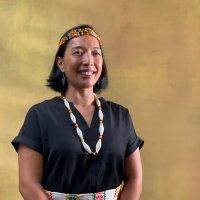Advancing Biodiversity for Community Resilience and Global Stability: Insights Ahead of COP16
Submit a question
Biodiversity is in sharp decline, and the implications for global stability are significant. The World Wildlife Fund has estimated a 69% decrease in monitored wildlife populations since 1970, driven by climate change, deforestation, pollution, and human encroachment. While the moral imperative to protect life on our planet is strong, healthy ecosystems are also vital for human health, food and water security, and climate resilience.
In October 2024, experts and country representatives convened in Colombia for the United Nations Biodiversity Conference (COP16) to deliberate on global goals and actions to protect the diversity of life on our planet. The 2022 meeting - hosted by China - resulted in a landmark global deal to protect 30% of the world’s land and sea by 2030. The 2024 Biodiversity COP focused on the next steps to implement the 30x30 agreement, and how to reform global financial systems to support developing countries in achieving their commitments.
Moderator

Panelists




Hosted By

Environmental Change and Security Program
The Environmental Change and Security Program (ECSP) explores the connections between environmental change, health, and population dynamics and their links to conflict, human insecurity, and foreign policy. Read more


China Environment Forum
Since 1997, the China Environment Forum's mission has been to forge US-China cooperation on energy, environment, and sustainable development challenges. We play a unique nonpartisan role in creating multi-stakeholder dialogues around these issues. Read more


Indo-Pacific Program
The Indo-Pacific Program promotes policy debate and intellectual discussions on US interests in the Asia-Pacific as well as political, economic, security, and social issues relating to the world’s most populous and economically dynamic region. Read more


Latin America Program
The Wilson Center’s prestigious Latin America Program provides non-partisan expertise to a broad community of decision makers in the United States and Latin America on critical policy issues facing the Hemisphere. The Program provides insightful and actionable research for policymakers, private sector leaders, journalists, and public intellectuals in the United States and Latin America. To bridge the gap between scholarship and policy action, it fosters new inquiry, sponsors high-level public and private meetings among multiple stakeholders, and explores policy options to improve outcomes for citizens throughout the Americas. Drawing on the Wilson Center’s strength as the nation’s key non-partisan policy forum, the Program serves as a trusted source of analysis and a vital point of contact between the worlds of scholarship and action. Read more




